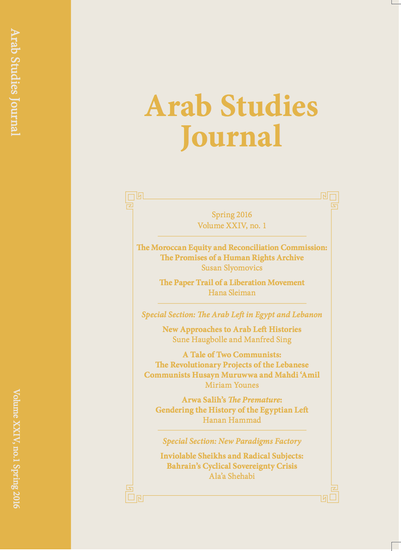Excerpt from the article
Our article offers a preliminary assessment of al-Akhbar in the period between its fast-paced rise after the 2006 Israeli war on Lebanon and its speedy decline in stature as a critical and left-leaning publication in 2011. We explore what its turbulent path reveals about the Arab left, contemporary Arab intellectual history, and the transformation of press culture in Lebanon. We examine al-Akhbar’s intellectual origins and originality, its content and analysis, and its editorial understanding of the left as a political and cultural force. Our outlook is purposely contemporary and serves first as an invitation to move beyond the abstract question of "modernity" in relation to this history. The infatuation with modernity is not merely academic, it produces a discourse focused on the origins and afterlives of nationalism along with related political and social formations. Focused on the nineteenth century, many studies in this vein adopt a declensionist, anticolonial metanarrative that starts with the nahda and ends with the naksa of 1967. In this metanarrative, Arab modernity is often framed like a chronicle of a death foretold. By contrast, studies conducted by US think tanks and other policy lobby groups rarely evince any memory of the contested nature of this modern past and repeat self-serving policy recommendations that often perpetuate the crises in the Middle East. Our contemporary outlook seeks to move beyond these pitfalls and into the present by taking seriously the ways in which the demise of Soviet and third worldist alternatives has left the field of Arab political critique and cultural production at the mercy of the combined forces of petro-Islam and neoliberalism, or "Mcjihad" in Timothy Mitchells words.
Publication Type
- Article



